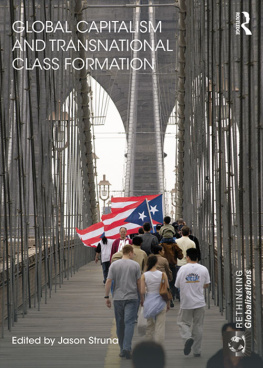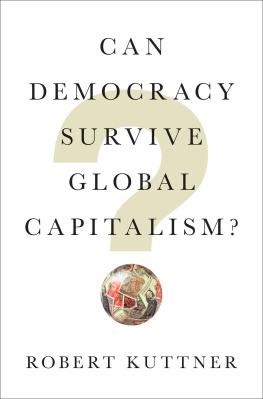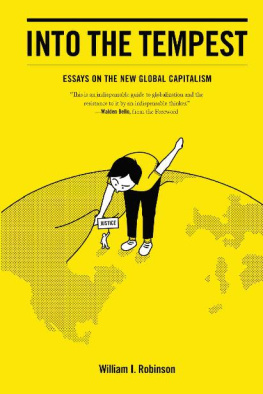
Social Mobilization, Global Capitalism and Struggles over Food
This book explores the transformation of Brazil and Argentina into two of the worlds largest producers of genetically modified (GM) crops. Systematically comparing their stories in order to explain their paths, differences, ruptures and changes, the author reveals that the emergence of the two nations as leading producers of GM crops cannot be explained by technological superiority of biotechnology; rather, their trajectories are the results of political struggles surrounding agrarian development, in which social movements and the rural poor contested the advancement of biotechnologically based agrarian models, but have been silenced, ignored or demobilized by a network of actors in favour of GM crops.
Based on rich interview and media material collected amongst activists, the author highlights the importance of political struggles over GM crops not only to debates on agrarian futures and food security, but also as illustrations of the challenges faced by contemporary democracies. An international comparative study, this book raises the question of how social mobilization and rights claims can counter the systemic imperatives of global capitalism and political interests, at a time when regional governments are reliant on commodity booms, whilst globally, governments are obliged to introduce programmes of austerity. As such it will appeal to scholars of sociology, political science and geography with interests in social movements, development, globalization, inequality and political economy.
Renata Motta is Assistant Professor of Sociology at the Institute for Latin American Studies at the Freie Universitt Berlin, Germany.
Entangled Inequalities: Exploring Global Asymmetries
Series editors:
Srgio Costa, Freie Universitt Berlin, Germany
Departing from classical approaches to the study of social inequalities between individuals and social classes within particular national settings, this series emphasises the production and reproduction of inequalities across borders, as well as the multiplicity of categories - whether race, sex or nationality amongst others - according to which contemporary inequalities are shaped.
Entangled Inequalities constitutes a forum and a catalyst for discussing recent advancements in inequality research from a transnational, global and intersectional perspective, highlighting the fact that social inequalities are always the product of both global interpenetrations and of complex intersections between different social categorisations. The series therefore welcomes monographs and edited volumes across the social sciences that deal with inequalities from an entangled perspective - with an intersectional or a transnational focus, or both.
Titles in this series
A Moment of Equality for Latin America?
Barbara Fritz and Lena Lavinas
(Ashgate, 2015)
Forthcoming titles in this series
Reducing Inequality in Latin America
Mara Fernanda Valds
(Routledge, 2016)
Social Mobilization, Global Capitalism and Struggles over Food
A Comparative Study of Social Movements
RENATA MOTTA
Institute for Latin American Studies
Freie Universitt Berlin, Germany
First published 2016
by Routledge
Park Square, Milton Park, Abingdon, Oxon OX14 4RN
and by Routledge
Third Avenue, New York, NY 10017
Routledge is an imprint of the Taylor & Francis Group, an informa business
2016 Renata Motta
The right of Renata Motta to be identified as author of this work has been asserted by her in accordance with sections 77 and 78 of the Copyright, Designs and Patents Act 1988.
All rights reserved. No part of this book may be reprinted or reproduced or utilised in any form or by any electronic, mechanical, or other means, now known or hereafter invented, including photocopying and recording, or in any information storage or retrieval system, without permission in writing from the publishers.
Trademark notice: Product or corporate names may be trademarks or registered trademarks, and are used only for identification and explanation without intent to infringe.
British Library Cataloguing in Publication Data
A catalogue record for this book is available from the British Library
Library of Congress Cataloguing in Publication Data
Names: Motta, Renata, author.
Title: Social mobilization, global capitalism and struggles over food: a comparative study of social movements / by Renata Motta.
Description: Farnham, Surrey, UK; Burlington, VT: Ashgate, [2016] | Series: Entangled inequalities: exploring global asymmetries | Includes bibliographical references and index.
Identifiers: LCCN 2015042293 | ISBN 9781472479082 (hardback: alk. paper) |
Subjects: LCSH: Agriculture and stateEnvironmental aspectsSouth America. | Transgenic plantsPolitical aspectsSouth America. | Transgenic plantsSocial aspectsSouth America. | Agriculture and politicsSouth America. | AgricultureEconomic aspectsSouth America. | Social movementsSouth America.
Classification: LCC HD1857.M67 2016 | DDC 338.1/88dc23 LC record available at http://lccn.loc.gov/2015042293
ISBN: 9781472479082 (hbk)
ISBN: 9781315609539 (ebk)
Typeset in Times New Roman
by Out of House Publishing
For my parents
Contents
This project included the support of many people whom I had the pleasure to work with in the last six years as well as from those who have influenced my thinking long before, and from far away. The book had its origins in a PhD project, so I would like to start by thanking Srgio Costa (mentor, friend and colleague) for being my main exchange partner during this enterprise, and Veronica Schild, who accepted to join the thesis commission when so many decisions had already been taken, and who, nevertheless, was able to help me so much in the crafting of the final piece. The constructive critiques of Manuela Boatc, Kristina Dietz and Bettina Engels on the thesis defence definitely strengthened the manuscript. During these years in Berlin, I sought feedback from Dieter Rucht, Ruud Koopmans and Wolfgang van den Daele, who gave valuable suggestions for the research. Needless to say, the resulting work is my sole responsibility.
I am indebted to the desiguALdades.net not only for providing me with the financial support for conducting this research but also for the incredible network of people I was able to know and to spend time with during the years in which I had my scholarship there. I thank Marianne Braig, Barbara Gbel, Anna Wickes-Neira, Bettina Schorr, Paul Talcott, Laura Kremmer and Johannes Heeg for maintaining the network. Among many other research fellows, I would like to especially thank Elizabeth Jelin, Juan Pablo Prez Sinz, Elisa Reis, Carla Gras and Lena Lavinas, with whom I had the privilege to discuss my chapters. I am grateful to Rodrigo Rodrigues and Manuel Gngora-Mera for their help in the end phase of the manuscript. My colleagues, with whom I shared the office in the beautiful villa in Thielplatz, Maria Fernanda Valds, Markus Rauchecker, Frank Mller, Constantin Groll and Jairo Baquero, thank you for the mutual support and motivation.










